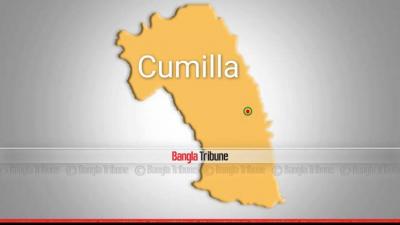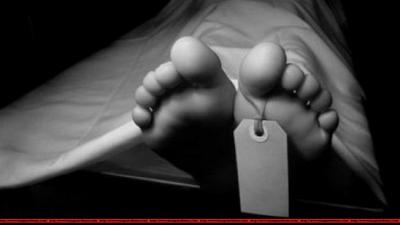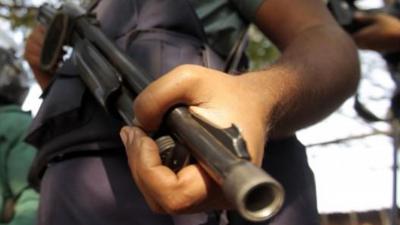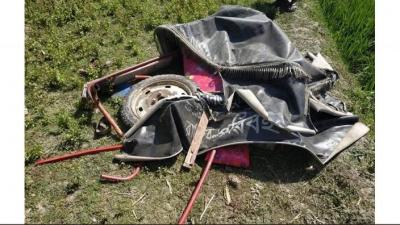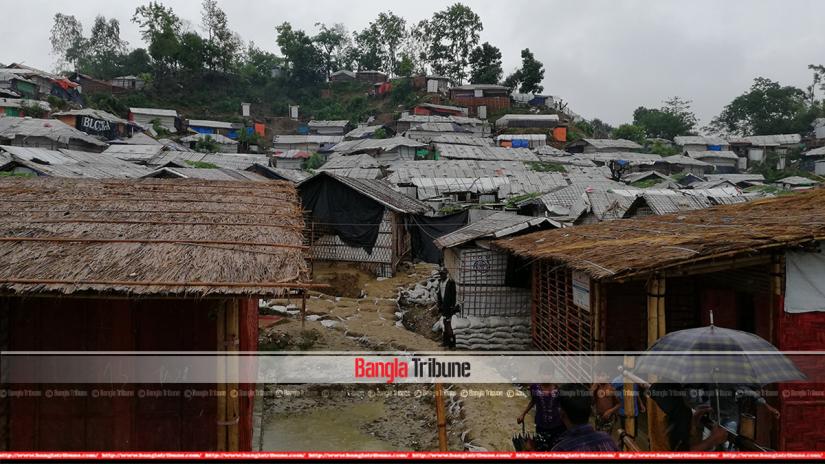 Human trafficking teams have become active once more at the Rohingya refugee camps in Cox’s Bazar. Their operators are luring Rohingyas with a promised passage to Malaysia and Thailand by sea but there is a feeling that illegal trafficking have begun due to a lack of proper surveillance near the border.
Human trafficking teams have become active once more at the Rohingya refugee camps in Cox’s Bazar. Their operators are luring Rohingyas with a promised passage to Malaysia and Thailand by sea but there is a feeling that illegal trafficking have begun due to a lack of proper surveillance near the border.
Law enforcers say that in the last one and a half months, around 200 Rohingyas were detained from the sea. Most are women and children. All are from the Ukhiya and Teknaf Rohingya camps. On Nov 13 last, Coast Guards detained a trawler carrying 122 Rohingyas. Among them were 15 children, 59 women and 48 men. But recently, Cox’s Bazar district police suggested placing barbed wires around the camps to prevent people escaping.
ASP of Cox’s Bazar, Iqbal Hossain, says: “The traffickers choose this time as the sea is calm but the police are vigilant.”
Another official adds: “Since more rohingyas are trying to flee, the government has become more alert; as a result, police BGB, RAB and other intelligence agencies are watchful.”
As per information from the police, in the last ten months, 600 persons were rescued from trawlers at sea.
A UNHCR report says that from January, 2018 till January, 2019, more than 1,500 refugee seekers crossed the Bay of Bengal and the Andaman Sea.
Traffickers are using several points to send people to Malaysia and they are: Shamlapur, Shilkhali, Rajarcharam, Sitakunda, Jahajpura Sabarantand others.
Reportedly, some Rohingya leaders are linked to the illegal operation and all are residents of camps in Teknaf. Some traffickers are also based in Malaysia.
President of the Leda camp development committee, Mohammad Alam, said: “Rohingyas had always had a predilection to go to Malaysia for a better life; the trafficking was low due to the alertness of the law enforcers but since the sea is calm now, the practice has picked up.”
A Rohingya leader of Kutupalong camp, said: “The main targets of traffickers are women who are married off over phone to someone in Malaysia. Most women want to go abroad for a better life.”
To procure the money, they sell relief items and hand the cash to the traffickers, according top him.
The coordinator of an organisation called ‘Amra Cox’s Bazar bashi’, HM Nazrul Islam, said: “After a long hiatus, the trafficking has restarted and the main targets are women.”
Acting district administrator of Cox’s Bazar, Ashraful Afsar, said: “The government has taken a firm position to stop human trafficking and law enforcers are working.”
On August 2017, around 750,000 Rohingyas fled to Bangladesh to avoid a crackdown by the Myanmar military, ostensibly against militants. Along with the previous 400,000 refugees, the current number of Rohingyas is more than 1.1 million. They are living in 34 camps in Ukhia and Teknaf of Cox’s Bazar.
 Country
Country
40984 hour(s) 43 minute(s) ago ;
Morning 11:37 ; Friday ; Jun 20, 2025
Human traffickers active at Rohingya camps
Send
Abdur Rahman, Teknaf
Published : 07:30, Nov 25, 2019 | Updated : 21:49, Nov 27, 2019
Published : 07:30, Nov 25, 2019 | Updated : 21:49, Nov 27, 2019
0 ...0 ...
/tf/ab/
Topics: Top StoriesExclusive
- KOICA donates medical supplies to BSMMU
- 5 more flights to take back British nationals to London
- Covid19: Rajarbagh, Mohammadpur worst affected
- Momen joins UN solidarity song over COVID-19 combat
- Covid-19: OIC to hold special meeting
- WFP begins food distribution in Cox’s Bazar
- WFP begins food distribution in Cox’s Bazar
- 290 return home to Australia
- Third charter flight for US citizens to return home
- Dhaka proposes to postpone D8 Summit
Unauthorized use of news, image, information, etc published by Bangla Tribune is punishable by copyright law. Appropriate legal steps will be taken by the management against any person or body that infringes those laws.
Bangla Tribune is one of the most revered online newspapers in Bangladesh, due to its reputation of neutral coverage and incisive analysis.
F R Tower, 8/C Panthapath, Shukrabad, Dhaka-1207 | Phone: 58151324; 58151326, Fax: 58151329 | Mob: 01730794527, 01730794528

